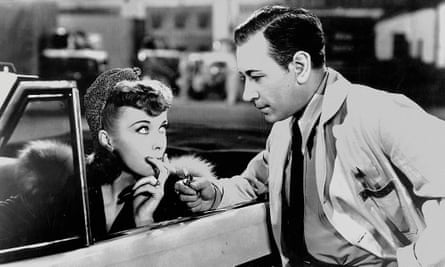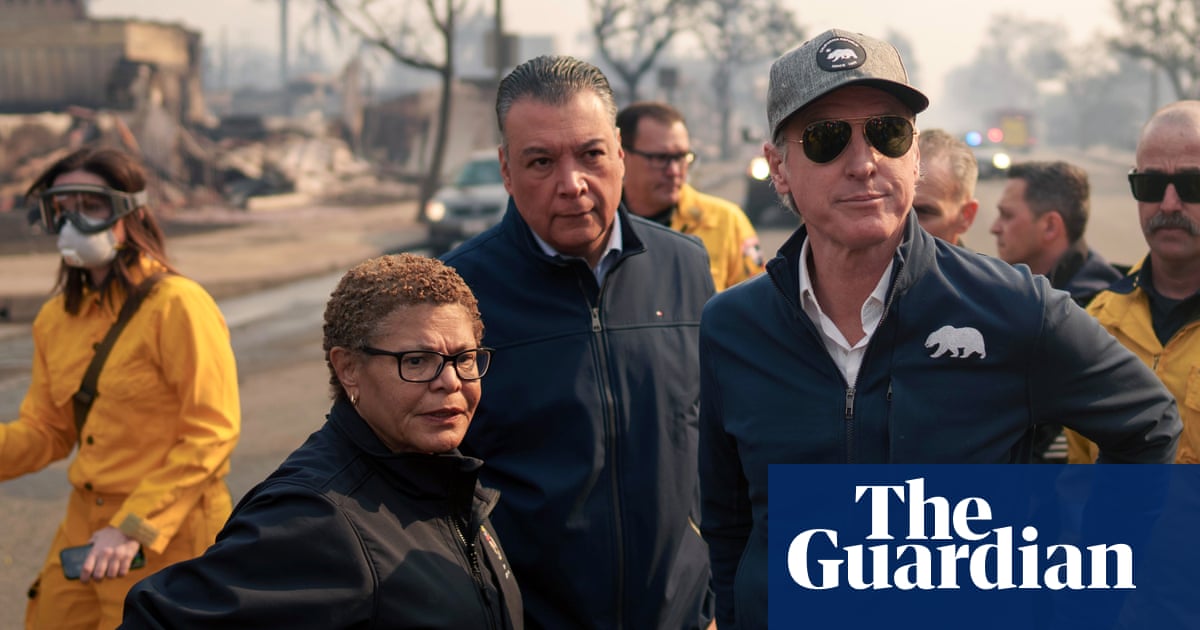When Ida Lupino starred opposite Humphrey Bogart in Raoul Walsh’s gritty film noir High Sierra, it was her name, not Bogie’s, at the top of the poster. This nail-biting movie with its terrific mountainside climax is about a released convict forced back into another heist, and the taxi dancer he can’t shake off. Lupino plays the dancer, a woman longing for an exit strategy from her tawdry world, and she transforms the role into something more than a type, with an unexpectedly authentic air of desperation. The film made household names out of both its leads, but for Lupino, as for Bogart, there was no such thing as overnight success.
Lupino’s own breakthrough came after seven years in Hollywood and a lifetime in showbusiness. She always refused the easy option and fought hard for her wins. Hedda Hopper neatly said Lupino had made her career out of combining “three little words – talent, nerve and courage – to spell success”.
Starring Ida Lupino, a new series on the Criterion Channel this month, highlights the story of this provocative star, who overcame studio typecasting to give some of the most psychologically intense female performances of Hollywood’s golden age. Lupino may have enjoyed acting less than she did directing (“It’s so much more fun. Creating it yourself, not just parading in front of a camera”), but as the films playing on the channel this month reveal, she was capable of truly exceptional work on screen.
Lupino was born in London in 1918, during an air raid, into a successful theatrical family. Her mother was an actor, her father was the music-hall comic Stanley Lupino and her cousin was the entertainer Lupino Lane. She made her first films in Britain as a teenager, mostly along one track. “My father once said to me: ‘You’re born to be bad,’” she remembered. “And it was true. I made eight films in England before I came to America, and I played a tramp or a slut in all of them.”
In Hollywood, Paramount asked her to bleach her brunette hair to play the lead in Alice in Wonderland, but that was a misguided plan. She confessed: “I could never feel Alice. I’ve never been Alice’s age.” Instead, Lupino was hastily marketed as “the English Jean Harlow” but that wasn’t right either. She slowly began to find her feet, for example in a memorable role as a flirtatious Cockney failing to woo a heartsick Gary Cooper in the dreamy romance Peter Ibbetson.
Frustrated with the lightweight roles she was given, Lupino took matters into her own hands, as she so often would. She left her contract and sought a role that she could sink her teeth into, demanding an audition for the vicious model Bessie Broke, another Cockney, in William Wellman’s The Light That Failed. She triumphed in the role and next stole the show in They Drive by Night as the murderous wife who loses her mind in court. Hence appearing for Walsh again in High Sierra, after she negotiated a contract with Warner Bros – one that gave her freelance options.

Continually drawn to edgier material, Lupino often joked that she was “the poor man’s Bette Davis”, picking up roles the more famous star passed on. But that self-deprecation hid the extent of her creative ambition. Lupino pressed screenwriter Robert Rossen to emphasise the class-based oppression of her character in the sinister melodrama The Sea Wolf, a film set on a scavenger ship run by a fascistic captain (Edward G Robinson), which resonated so strongly with events in Europe that she later said it “could pass as current history”. To prepare for 1942’s seedy shipyard romance Moontide, she personally took co-star Jean Gabin on a tour of the rougher locales in Los Angeles for a “first-hand look at vice and violence”.
She was initially reluctant to play the pushy older sister in showbiz drama The Hard Way, a story allegedly based on Ginger Rogers’s early years. When the acclaim rolled in for Lupino’s brittle, angry portrayal, Davis herself was moved to ask: “How did I let that one get away?” And it’s hard to imagine anyone else giving her wayward nightclub singer in The Man I Love the same combination of courage and romantic yearning. Still, Lupino craved something more, and after leaving her Warner Bros contract in 1947, she finally began directing low-budget films, including the tense noir The Hitch-Hiker and first-rate dramas on hard-hitting topics, including rape and bigamy.
In Nicholas Ray’s On Dangerous Ground she is quite astonishing as an isolated blind woman attempting to protect her brother from the law, represented by Robert Ryan’s out-of-bounds detective. It’s one of Ray’s best films and one of Lupino’s most exquisite performances. A rumour persists that Lupino took over when the director fell ill. She never confirmed the rumour, and that’s probably all it was. All she would say is: “In a way Bob Ryan and I did. We did it our way.” As if Lupino ever wanted anyone else to tell her what to do.

.png) 2 months ago
23
2 months ago
23













































